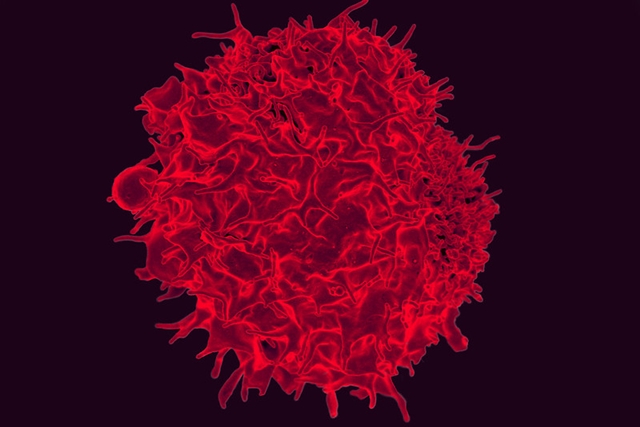29 Sept. 2023. A company with a process to generate new thymus tissue for immune system functions is receiving a $37 million award from the government’s health breakthrough agency. The Advanced Research Project Agency – Health or ARPA-H is awarding the funds to Thymmune Therapeutics in Cambridge, Massachusetts for its work on engineering thymus tissue from stem cells.
Thymmune Therapeutics is a four year-old biotechnology company, spun off from the lab of genomics researcher George Church in the Wyss Institute at Harvard University. The company says its process recreates engineered thymus tissue for people without a functioning thymus. The thymus is a gland in the body’s lymphatic system, a network of tissue and organs that make up part of the immune system, that trains T lymphocytes, key white blood cells for fighting off infections. T lymphocytes or T-cells are initially generated from bone marrow, where they travel to the thymus for maturation. The thymus also produces hormones in the body’s endocrine system that support the immune system.
The thymus is most active in childhood and generally shrinks as part of the aging process, making older people more susceptible to diseases from a failing immune system. The company cites data showing some 10,000 people a year are diagnosed with thymus-related disorders, either from birth defects, cancer treatments, or autoimmune diseases.
Thymus cells and tissue in larger quantities
The Thymmune technology is based on research done originally at University of California in San Francisco led by Audrey Parent, now with UC-San Francisco’s Diabetes Center, that generated thymic tissue from human embryonic stem cells. The company says its process has advanced to where induced pluripotent stem cells, iPSC or so-called adult stem cells, can now transform into functioning thymus cells. And, says the company, they can produce engineered thymus cells and tissue in larger quantities, aided by machine learning algorithms.
ARPA-H is an agency in the U.S. Department of Health and Human Services with a mission to generate breakthrough technologies to advance human health, particularly where conventional research and development processes cannot do the job. In March, ARPA-H issued its first open broad agency announcement for proposals for R&D across a range of patient populations and diseases. This week, ARPA-H announced its first seven awards from the call, either contracts or cooperative agreements, of which Thymmune Therapeutics was the only industry recipient.
The ARPA-H award calls for Thymmune Therapeutics to first refine its lab process for transforming adult stem cells into thymus cells and tissue to produce T-cells. In the second part of the project, the company expects to demonstrate transplantation and engraftment techniques for engineered thymus to achieve immune functions in lab animals. If all phases of the project are achieved, the company can gain the full $37 million award.
“Drawing from decades of dedicated research on the thymus gland,” says Thymmune Therapeutics founder and CEO Stan Wang in a company statement released through BusinessWire, “our approach has the potential to revolutionize immunology through the creation of innovative therapies for patients in need with a range of immune system disorders.” Wang adds, “This funding will empower us to reshape drug development by harnessing cutting-edge advancements in thymus biology, iPSC technology, and machine learning.”
More from Science & Enterprise:
- Small Biz Award Funds Wearable Drug Delivery Patch
- Neurons from Stem Cells Produced for Overdose Therapy Tests
- Trial Underway Testing Stem Cell Particles for Burns
- Streamlined Gene Therapy Delivery Process Demonstrated
- Trial Cleared for Lab-Grown Replacement Knee Cartilage
We designed Science & Enterprise for busy readers including investors, researchers, entrepreneurs, and students. Except for a narrow cookies and privacy strip for first-time visitors, we have no pop-ups blocking the entire page, nor distracting animated GIF graphics. If you want to subscribe for daily email alerts, you can do that here, or find the link in the upper left-hand corner of the desktop page. The site is free, with no paywall. But, of course, donations are gratefully accepted.
* * *


 RSS - Posts
RSS - Posts
You must be logged in to post a comment.